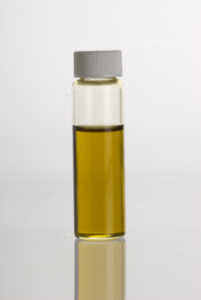Avocados are very high in omega-3 fatty acids, the good kind of fat, in the form of alpha-linolenic acid. It accounts for about three-quarters of the calories in an avocado. Monounsaturated fats can help lower cholesterol and improve heart health. Avocados also have a higher percentage of protein than other fruits. Their sugar levels are also comparatively low. Avocado Oil is pressed from the fruit avocado and used as an ingredient in dishes and as a cooking oil.
- Avocados contain many essential vitamins and minerals. They are a good source of pantothenic acid (vitamin B5), vitamin K and fiber, which aids digestion and helps maintain regularity. Additionally, avocados are high in magnesium, phosphorus, iron and potassium, containing even more potassium per gram than bananas, according to the New York University Langone Medical Center.
- Fresh avocados contain lycopene and beta-carotene, which are important carotenoid antioxidants. The highest concentration of these antioxidants is located in the dark green flesh closest to the peel, according to the California Avocado Commission. Antioxidants help reduce cell damage.
- Avocados are high in mono- and polyunsaturated fats, which may help reduce blood cholesterol levels and decrease risk for heart disease.
Contents
Benefits
- Anti-inflammatory agent: Avocados have great anti-inflammatory properties. They are rich in phytosterols, carotenoid antioxidants, omega 3 fatty acids and polyhydroxolated fatty alcohols, which can all help both rheumatoid arthritis and osteoarthritis.
- Lowering cholesterol: Avocados may help not only lower bad cholesterol, they may also increase levels of good cholesterol. A 1996 study in the journal Archives of Medical Research found that patients with mild hypercholesterolemia (high cholesterol) who incorporated avocados into their diet for one week had a 22 percent decrease in bad cholesterol and triglycerides and an 11 percent increase in good cholesterol. Avocados also improved cholesterol for people who already had good lipid levels, but were shown to be especially effective in those with mild cholesterol problems. Avocados can help in this way because of their high amount of the Beta Sitosterol compound, which is associated with lowering cholesterol.
- Regulating blood sugar: Avocados’ high levels of monounsaturated fats can help stop insulin resistance, which helps to regulate blood sugar levels. Furthermore, the soluble fiber in avocados can help keep blood sugar levels steady. In comparison to other fruits, the low carb and sugar levels in avocados also help maintain blood sugar.
- Regulating blood pressure: Avocados’ high levels of potassium can help keep blood pressure under control. The American Heart Association reported that potassium helps regulate the effects of salt, which can increase your blood pressure.
- Vision: According to Avocado Central, the website of the Hass Avocado Board, avocados are an excellent source of the Carotenoid lutein, which reduces the risk of macular degeneration and cataracts.
- Immune system : Glutathione is a powerful antioxidant associated with immune system health. A 2000 report in the journal Proceedings of the Nutrition Society stated, “The immune system works best if the lymphoid cells have a delicately balanced intermediate level of glutathione.” Avocados are a good source of this substance, according to American National University.
- Pregnancy and preventing birth defects: According to the California Avocado Commission, avocados are a great choice for moms-to-be. Avocados contain a significant amount of folic acid, which is essential to preventing birth defects like spina bifida and neural tube defects.
- Cancer: Avocados have been shown to reduce the risk of certain cancers, including cancers of the mouth, skin and prostate. This is due to the unusual mix of antioxidant and anti-inflammatory characteristics. Furthermore, a 2007 study in the journal Seminars in Cancer Biology found that the phytochemicals in avocados encourage cancer cells to stop growing and die.
- Digestion: The fiber in avocados helps keep digestion on track, encouraging regular bowel movements, healthy intestines and a healthy weight, according to the Mayo Clinic.
- Skin: The vitamin C and vitamin E in avocados help keep skin nourished and glowing, according to the Linus Pauling Institute at Oregon State University. Avocado and vitamin B12 cream may be useful in treating psoriasis, according to the University of Maryland Medical Center.
Cautions
- As with many other fruits, avocados’ primary risks are related to over-consumption. Consuming too many avocados may lead to weight gain because of the fat content.
- Additionally, avocado allergies, while uncommon, do exist. They are typically associated with latex allergies, according to the Mayo Clinic. Symptoms include a stuffy nose, wheezing, coughing and edema. If you experience any of these symptoms after eating an avocado, try cutting the fruit out of your diet to see if the symptoms disappear. If they persist or are severe, consult a doctor.
References
Source: Szalay, Jessie, web article. www.livescience.com/45209-avocado-nutrition-facts.html
See also Persea Gratissima (Avocado) Oil


